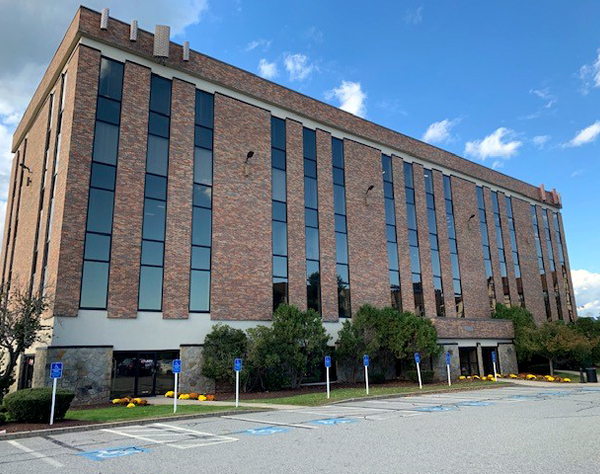




1661 Worcester Road, Suite 204, Framingham, MA 01701 • Phone: 508-232-6267
1661 Worcester Road, Suite 204, Framingham, MA 01701

By Laura A. Demerle, Esq.
As we all have come to know, bad things happen sometimes. Often, these random acts of nature or little mistakes we make ourselves can end up being bigger problems. When it comes to those unfortunate events, homeowners rest assured knowing their insurance policy is there to cover it. After all, that's why we pay the premiums. More often than most realize, however, those little problems that become big messes may be someone else's fault. For instance, when a dishwasher leaks, it could have happened because the dishwasher itself was defective, or because it was not properly installed, or because it was incorrectly maintained, or because it was just old. Depending on the circumstances, when such a leak happens, your insurance company may want to find out who was at fault and, if not the homeowner, hold them accountable. As the insured homeowner, you can help your insurer (and help yourself get back your deductible and other out of pocket expenses) by making sure the evidence of the loss is properly preserved to prevent spoliation of evidence.
Spoliation of evidence is the destruction of evidence, whether innocently or intentionally. Lack of evidence in a homeowner's claim may prevent the insurance company from recovering its losses from a negligent manufacturer, seller, installer, builder, subcontractor, plumber, or other party responsible for the homeowner's damages.
How does spoliation occur? Most often, spoliation occurs when a homeowner attempts to repair a problem himself or herself. Imagine you purchased a new dishwasher from a big box store, had it delivered and installed by a licensed plumber. When you used the dishwasher for the first time, it leaked and caused water damage to your kitchen. Perhaps the water even leaked through the floor and into your newly finished basement. You called the plumber to fix the problem, and he did. This is potential spoliation of evidence. Wait, what? How did I spoliate the evidence just by getting the problem fixed? When the plumber came to fix the dishwasher, the plumber may have repaired a leaky hose, or replaced a faulty gasket, or replaced the dishwasher entirely. Isn't that what plumbers are supposed to do? Yes, absolutely. And you, the homeowner, are within your rights to make sure the most expensive asset you own (your home) is safe and secure.
Why is it so important that evidence be preserved in a case like this? Once the leak was fixed and you took a look around at the damage you most likely called your homeowner's insurance carrier to file a claim to fix the ruined kitchen floor and basement. And as it should, your insurance company paid your claim. Once the proverbial (and literal) dust settles, however, your insurance company is going to attempt to recover its losses (the money it paid you) from the person or company actually responsible for the damage to your home. Unless the problems you had with the dishwasher were thoroughly documented and the evidence preserved, either by keeping the part that was replaced or the appliance itself, it is possible your insurance company will not be able to recover the money it paid you for the damage to your home. The potentially responsible parties (the manufacturer, seller or installer) will assert a defense of spoliation of evidence purely as a tactical matter. They will claim the dishwasher was not defective or the work they did was not the problem; and now the evidence of that may be ruined.
How do I preserve the evidence? To avoid the possibility or suggestion of spoliation of evidence claims, the homeowner should immediately contact their homeowner's insurance company, even before the repairs are made, if possible, and provide a detailed description of each and everything that has transpired. In this case, for example, you might also provide photographs or videos of the dishwasher, the leaking water, the water in your home. If a part was replaced, photograph the part and keep it in a plastic bag or a box - do NOT let the plumber or service person take it with them. If they insist on taking the part for warranty or exchange purposes, let your insurance company know this before it leaves your property. Also, it is important to save invoices for the sale of the appliance showing where it was purchased, who delivered and/or installed the appliance and any detailed invoices of service performed on the appliance since the date of purchase.
Lesson learned? A homeowner always hopes nothing bad happens to their home. But if it does, one of the first telephone calls you make should be to your homeowner's insurance carrier.
This website is not intended to constitute legal advice or the provision of legal services. By posting or maintaining this website and its contents, Parenteau & O'Hara, P.C. does not intend to solicit legal business from clients located in states or jurisdictions where Parenteau & O'Hara, P.C. or its individual attorneys are not licensed or authorized to practice law. Some links within this website may lead to other websites. Parenteau & O'Hara, P.C. does not necessarily sponsor, endorse or otherwise approve of the materials appearing in such sites.
Practicing In: